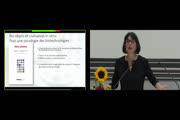Politiques familiales à l’aube du 21e siècle : nouvelles tendances et vulnérabilités dans la vie familiale
lundi 02 jui 2018
La mediathèque de l'IRS
1Les élites peuvent-elles être délinquantes? Tolérance et réprobation de la... 2Faut-il proscrire les méthodologies « undercover » en sciences sociales ?
2Faut-il proscrire les méthodologies « undercover » en sciences sociales ? 3Beyond Disciplinary Boundaries
3Beyond Disciplinary Boundaries 4Taming Time
4Taming Time 6Enjeux éthiques autour de la production et la gestion de données en sciences...
6Enjeux éthiques autour de la production et la gestion de données en sciences... 7La consommation énergétique des ménages
7La consommation énergétique des ménages 8Faire face aux crises, la ville en transition
8Faire face aux crises, la ville en transition 9Public·ques !
9Public·ques !  10200818_sis_animation-web.55401.12
10200818_sis_animation-web.55401.12 11Bio-objets et civilisation in vitro: Pour une sociologie des biotechnologies
11Bio-objets et civilisation in vitro: Pour une sociologie des biotechnologies 12sismo_web_1080.41772.12
12sismo_web_1080.41772.12 13Inauguration Urban Hub Genève
13Inauguration Urban Hub Genève 14SPATIAL JUSTICE IN UNEQUAL CITIES: ORGANIZING KNOWLEDGE ACROSS UNIVERSITIES AND...
14SPATIAL JUSTICE IN UNEQUAL CITIES: ORGANIZING KNOWLEDGE ACROSS UNIVERSITIES AND... 15Quartier réservé
15Quartier réservé
01:43:11
 2Faut-il proscrire les méthodologies « undercover » en sciences sociales ?
2Faut-il proscrire les méthodologies « undercover » en sciences sociales ?01:14:05
 3Beyond Disciplinary Boundaries
3Beyond Disciplinary Boundaries01:57:14
 4Taming Time
4Taming Time01:54:58
5Politiques familiales à l’aube du 21e siècle : nouvelles tendances et...58:35
 6Enjeux éthiques autour de la production et la gestion de données en sciences...
6Enjeux éthiques autour de la production et la gestion de données en sciences...02:14:59
 7La consommation énergétique des ménages
7La consommation énergétique des ménages03:02
 8Faire face aux crises, la ville en transition
8Faire face aux crises, la ville en transition02:02:10
 9Public·ques !
9Public·ques ! 18:17
 10200818_sis_animation-web.55401.12
10200818_sis_animation-web.55401.1200:27
 11Bio-objets et civilisation in vitro: Pour une sociologie des biotechnologies
11Bio-objets et civilisation in vitro: Pour une sociologie des biotechnologies01:43:34
 12sismo_web_1080.41772.12
12sismo_web_1080.41772.1204:30
 13Inauguration Urban Hub Genève
13Inauguration Urban Hub Genève01:54:35
 14SPATIAL JUSTICE IN UNEQUAL CITIES: ORGANIZING KNOWLEDGE ACROSS UNIVERSITIES AND...
14SPATIAL JUSTICE IN UNEQUAL CITIES: ORGANIZING KNOWLEDGE ACROSS UNIVERSITIES AND...01:38:24
 15Quartier réservé
15Quartier réservé01:37




Conférence en français dans le cadre du séjour à l'IRS de la Professeure invitée Karin Wall. Résumé en anglais:
The first decades of the 21st century have significantly challenged national
welfare states and policies to support children and families. All European
countries have been coping with new family trends and vulnerabilities,
driven by both long-term and short-term social and economic
developments. Although these trends and their effects vary across
countries, child and family poverty levels have increased, the rebound
in fertility rates has stalled, as has the growth in female employment,
and pluralisation in family forms and transitions reveals various
aspects and dimensions of vulnerability beyond economic hardship
(e.g. stigmatisation, weak informal care support, effects of mobility and
transnational living, risks related to disability or dependency). How have
countries fared in tackling family and children’s issues during the past ten
years? Has family and child well-being been high on the political agenda?
Have policy actions taken into account recommendations concerning
financial support for vulnerable families, the reconciliation of work and
family, the promotion of gender equality, the uncertainties of parenthood
and parenting? And what has been the impact of these policies on
families? These questions will be at the core of our discussion. Through
a review of policy responses and initiatives, in the context of different
welfare pathways and macro social contexts in times of economic crisis
and its aftermath, we will assess the different arrays of policy objectives
and measures, seek to understand how they respond to family change
and vulnerable families, and discuss the factors which might be crucial
for improving the situation of families in the future.